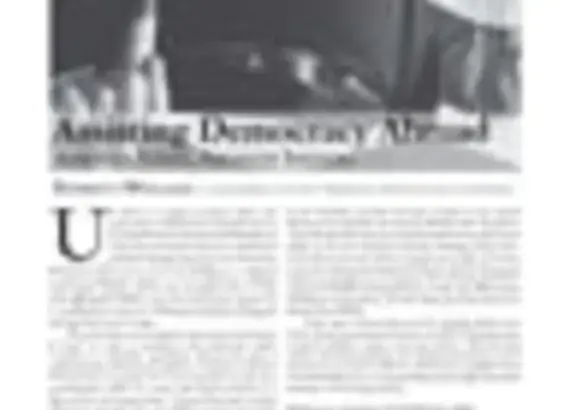
Success Story
Our Perspectives: Assisting Democracy Abroad - American Values, American Interests
In recent years, a debate has emerged among those who view democracy assistance programs as too idealistic and those who view them as too bellicose, conflated with regime change and nation-building, as in Iraq or Afghanistan. In the latest issue of the Harvard International Review, NDI President Kenneth Wollack looks at both sides of the debate and offers a third possibility — that democracy assistance continues to advance U.S. foreign policy goals through a more peaceful, prosperous and humane world.
Wollack traces the origins and history of democracy assistance programming, beginning in the 1970s and '80s when the number of democracies began to increase around the world. New democracies in Spain, the Philippines and Chile reinforced the notion that people aspire to live in free societies. With the fall of the Berlin Wall and democratic elections in South Africa and elsewhere, democracy was viewed as a global priority. Development organizations that had historically focused only on economic aid began to prioritize democracy assistance as well. Regional organizations began to support countries' democratic transitions.
"It is sadly ironic that just as democracy and liberal principles were increasingly shaping the discourse within and between nations, the linkage between democracy assistance and military intervention in Iraq caused democracy promotion to become a hotly debated topic," Wollack said. This undermined global support for democracy assistance and made the international community wary of U.S. motives causing "some to view it as a Trojan horse for the advancement of geostrategic objectives."
Going forward, Wollack argues that there is an important place for democracy support within U.S. foreign policy. Supporting local democracy movements contributes to a more peaceful and stable world, minimizing terrorism and maximizing trade opportunities — all of which support foreign policy goals. "Foreign policy is often at its best when it finds itself on the right side of history; a robust democracy assistance policy better positions U.S. policy in this regard."
Published November 29, 2010
